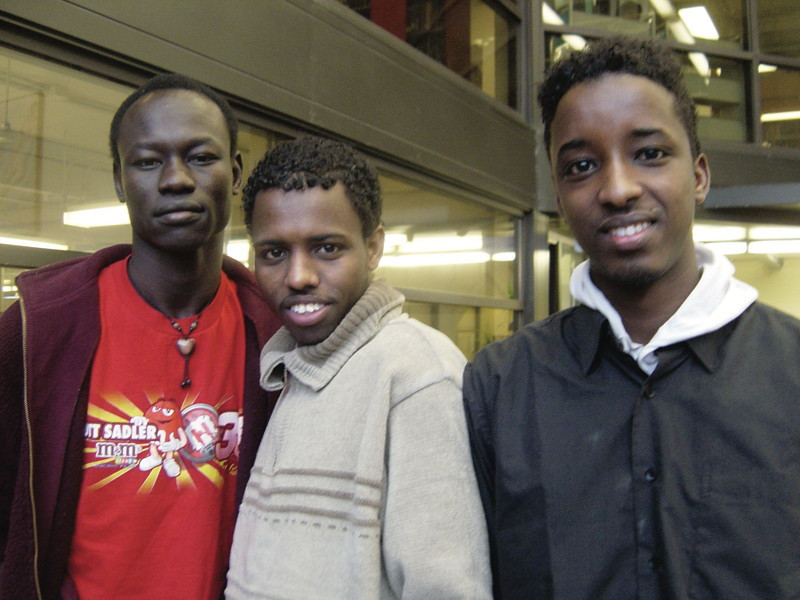Education as a human right
WUSC program lacking ability to sponsor two students next year due to decreased awareness
Mohamed Mahamud has never known the freedoms of being a national citizen.
The 21-year-old was born with refugee status in a Somalia refugee camp and grew up in the Dadaab camps in Kenya.
Last year Mahamud was one of two student refugees sponsored through the World University Service of Canada’s (WUSC) Student Refugee Program (SRP) to attend the University of Winnipeg for one year with the cost of tuition and living expenses waived.
“At home, I could not support myself to have a university education – I could not see my future,” he explained. “But when I was brought here I could see that I have a bright future.”
WUSC is a network of individuals and post-secondary institutions within Canada whose mission it is to foster human development and global understanding through education and training.
However, due to dwindling awareness of the program and a lack of funds, the program will only be able to sponsor one student for 2011/2012.
The SRP began in 1978 across Canada and has sponsored 38 students at the U of W since 1981.
The program is funded mostly by a student levy provided through each student’s tuition and allocated by the University of Winnipeg Students’ Association. It is usually about $2.50 per student.
“I think that if you ask a majority of students that go to U of W, they don’t even know that (WUSC) exists or that part of their tuition pays for this program,” said Melissa Rands, an admissions specialist in the admissions office at the U of W who works closely with the SRP students.
Cutting back is the only way SRP can comfortably continue the program.
“We don’t want to sponsor two students and then not have the resources for them,” said Justine Backer, chair of WUSC at the U of W. “We try to make them as comfortable as possible with what we’re given.”
Reducing the number of people who are accepted into the program is something that has Mahamud concerned.
“Reducing the number will reduce the hope of students back home – some of them may drop out, some of them may get married and some of them will lose hope,” he said.
Backer anticipates that in the future, WUSC will once again sponsor two students, but that will not be possible until more people are involved with the program.
“ I think that if you ask a majority of students that go to University of Winnipeg, they don’t even know that (WUSC) exists or that part of their tuition pays for this program.
Melissa Rands, admissions specialist, University of Winnipeg
On-campus options for support
For sponsored students, the transition from living in a camp to living in Canada is often overwhelming. However, they can receive the direction and resources on campus.
Aside from using WUSC as a starting point, students also have access to the U of W’s Global Welcome Centre (GWC), a non-profit organization sponsored by the Manitoba Immigrant Integration Program and funded by Citizenship and Immigration Canada and Labour and Immigration Manitoba.
The GWC assists immigrants and refugees mainly by providing academic and language services, but it also acts as a hub for other resources.
The centre offers a free university preparation evening course that focuses on reading, writing and learning which upon completion grants three credit hours towards a student’s degree.
“It’s geared more towards English as a Second Language students versus going to academic writing, which can be really heavy and full of terminology,” said Miranda Santolini, program co-ordinator for the GWC. “This teaches them the terminology and the skills to use what they’ve learned.”
Santolini said that often it is hard for a refugee to find good work references when they do need to find a job.
However, they can work at the GWC, if only for one hour a week, and use their language and work skills in a non-intimidating environment to gain experiences and receive a good reference for the future.
For the sponsored students, the services are greatly appreciated.
“Honestly, I have trouble keeping up, but the stuff I learn, I enjoy it,” said Mas Mbuyamba, one of the two students sponsored for 2010/2011.
“The more I stay here, the more I realize I really do have to work hard.”
Published in Volume 65, Number 16 of The Uniter (January 20, 2011)







